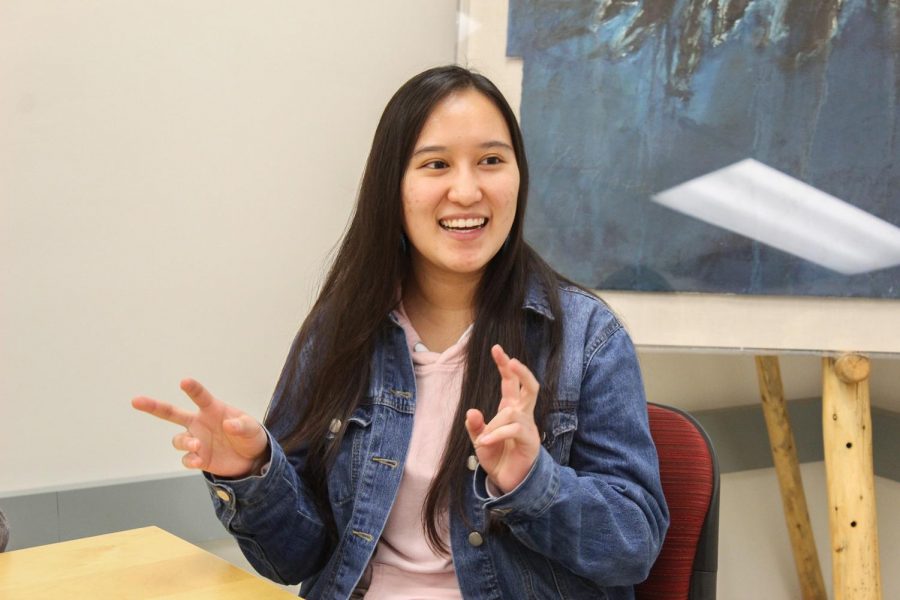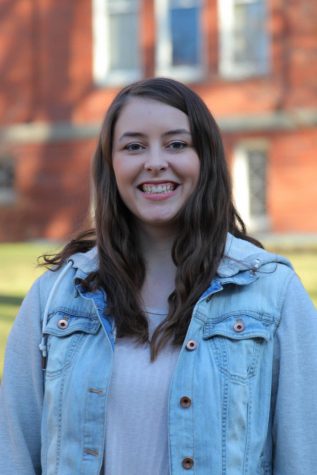Native women find solidarity in campus group
NAWA provides place for students to be themselves, offers education to larger community
CAROLYNN CLAREY | THE DAILY EVERGREEN
NAWA Vice President Kamapolani Garcia discusses how she reconnected with her Native heritage when she got involved with NAWA last Wednesday afternoon in the WSU Native Center.
March 5, 2020
Growing up in Hawaii, Kamapolani Garcia was always far away from her father’s Native Tohono O’odham heritage. Now the vice president of the Native American Women’s Association, Garcia says spending time with her late grandfather and meeting the women in NAWA helped her reconnect to, and learn more about, her heritage.
NAWA is an organization in the Coalition for Women Students. Garcia, a sophomore majoring in elementary education at WSU, said her father moved to Hawaii from Arizona before Garcia was born.
When Garcia’s grandmother passed away, she came back to Arizona and started talking with her cousins and grandfather. During that time, she would regularly speak with him about their family history, she said. He gave her items, such as moccasins and a special dress, and she continued to call him regularly until his passing.
“He was a big part of pushing me back into my culture,” she said.
Garcia said she met NAWA President Jaissa Grunlose through the Multicultural Student Services mentorship program last year. Grunlose encouraged Garcia to attend NAWA meetings.
“I was a little intimidated at first because I wasn’t super in touch with my Native side,” Garcia said.
Grunlose, a member of the Colville tribe, is a junior marketing major at WSU. She is also a first-generation college student from Yakima.
The biggest surprise to her when she first came to WSU was how little diversity there was, she said.
“I wasn’t used to being in such a big school with not a lot of people who look like me,” Grunlose said.
At NAWA, she felt welcomed right away, Grunlose said. She knew she belonged in the group when she noticed how loud they could laugh around each other without feeling embarrassed.
“I could really be myself,” she said. “Native women are known for having a really loud laugh … It was just like, a really comfortable, fun space to be in.”
Grunlose said anyone can join NAWA, it is not restricted to women.
NAWA provides both a space for Native students to express their culture, and provides education for the larger WSU community by hosting informational events.
One event coming up this semester is the annual Missing and Murdered Indigenous Women march.
This year’s event will include a candlelight vigil, a documentary and a keynote speaker. Students can also share personal experiences relating to MMIW.
“We raise awareness about the MMIW epidemic, not just in the U.S. but in Canada as well,” Grunlose said.
The MMIW event will be held in the beginning of April this year.
NAWA also hosts an event about cultural appropriation around Halloween time. The event includes a panel, presentation and time for questions.
Grunlose said the discussion about cultural appropriation began when people dressed up as Native Americans at WSU and were posting pictures of themselves on Instagram.
Garcia said the group usually receives backlash and comments, like asking “why is this important?” or saying “I’m Native but how does this affect me?”
“People want to say they know our history better than us,” Garcia said. “Maybe they read a paragraph in a textbook from elementary school, but we have to live with the historical trauma.”












